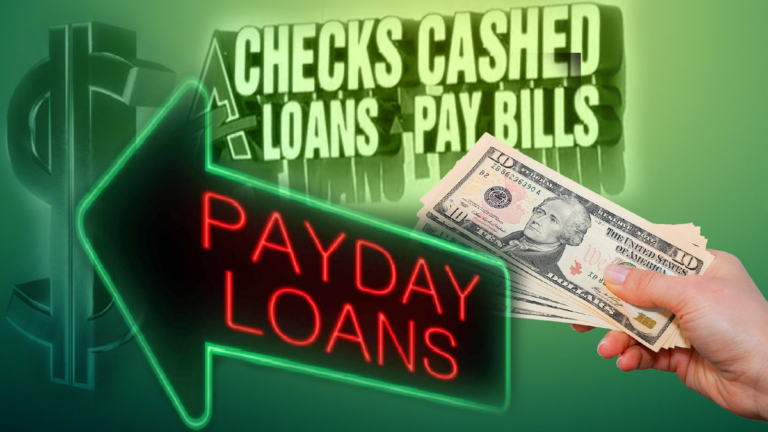1. Introduction
The payday loan industry is often the subject of scrutiny and criticism for its high interest rates and predatory lending practices. Unfortunately, it is also a breeding ground for scammers who prey on vulnerable individuals in need of quick financial assistance. In this comprehensive guide, we will discuss the definition of payday loan scams, explore various types of scams, and offer prevention tips to help you protect yourself and your finances.
2. Definition of Payday Loan Scams
Payday loan scams are fraudulent schemes designed to deceive individuals in need of short-term, high-interest loans. Scammers use various tactics to trick borrowers into paying excessive fees, sharing personal information, or taking on additional debt they cannot afford. These scams often target individuals with poor credit who may have difficulty obtaining traditional financing.
3. Types of Payday Loan Scams
The following are some common types of payday loan scams to watch out for:
3.1 Advance Fee Scams
In an advance fee scam, the scammer poses as a payday lender and requires the borrower to pay an upfront fee before receiving their loan. The scammer may claim the fee is for processing, insurance, or administrative purposes. Once the fee is paid, the scammer disappears, and the borrower is left without the loan they were promised.
3.2 Phantom Debt Collection Scams
These scams involve fraudsters posing as debt collectors, often using information obtained from other scams or data breaches. They will contact borrowers and claim they owe a debt on a payday loan they never took out or have already paid off. The scammers may use threats of legal action, jail time, or wage garnishment to pressure borrowers into paying the nonexistent debt.
3.3 Fake Lender Scams
Fake lender scams involve criminals posing as legitimate payday lenders to trick borrowers into providing personal and financial information. They may create convincing websites or use fake documentation to build trust with unsuspecting borrowers. Once the borrower provides their information, the scammer uses it to commit identity theft or other fraudulent activities.
3.4 Loan Flipping Scams
In a loan flipping scam, the scammer convinces a borrower to repeatedly refinance or extend their payday loan, usually by promising lower interest rates or other benefits. Each time the loan is flipped, the borrower incurs additional fees, increasing the overall cost of the loan and trapping them in a cycle of debt.
3.5 Identity Theft Scams
Identity theft scams involve scammers using personal information obtained through various means to apply for payday loans in someone else’s name. Once the loan is approved, the scammer pockets the money, leaving the victim responsible for repaying the loan and potentially damaging their credit.
In this type of scam, a fake lender asks the borrower to provide personal information such as their Social Security number, bank account number, or driver’s license number. This information can then be used to open credit accounts, apply for loans, or make fraudulent purchases in the borrower’s name.
3.6 Fake Loan Modification Scams
In a fake loanmodification scam, a fake lender may promise to modify the borrower’s existing loan to make it more affordable. However, the borrower may be required to pay upfront fees or provide personal information in order to qualify for the modification. In most cases, the modification never happens, and the borrower is left with even more debt.
3.7 Robocall Scams
In this type of scam, the borrower receives a robocall offering a payday loan with low interest rates and no credit check. The caller may ask for personal information or ask the borrower to pay upfront fees. In reality, the loan is fake, and the borrower is left with nothing but debt.
3.8 Fake Check Scams
Fake Check Scams: In this type of scam, a fake lender sends the borrower a check for the loan amount, but the check is fraudulent. The borrower deposits the check and uses the funds to pay for expenses, but later finds out that the check has bounced. The borrower is then responsible for repaying the entire loan amount plus fees.
3.9 Phishing Scams
Phishing Scams: In a phishing scam, the borrower receives an email or text message that appears to be from a legitimate lender. The message may ask the borrower to provide personal information or click on a link to a fake website. Once the borrower provides the information, the scammer can use it for identity theft or other fraudulent activities.
3.10 Loan Broker Scams
Loan Broker Scams: In this type of scam, a loan broker promises to connect the borrower with a legitimate lender, but requiresan upfront fee to do so. However, the broker never delivers on their promise, and the borrower is left with even more debt.
3.11 Overpayment Scams
Overpayment Scams: In this type of scam, a fake lender approves a payday loan for the borrower but sends more money than requested. The lender then asks the borrower to wire back the excess amount, but the original loan check bounces, leaving the borrower responsible for repaying the entire loan amount plus fees.
Overall, borrowers should be cautious and do their research before taking out a payday loan. Legitimate lenders will not ask for upfront fees, and borrowers should never provide personal information unless they are sure it is a legitimate lender. If a borrower suspects they have fallen victim to a payday loan scam, they should contact their local authorities and financial institutions immediately.
4. Prevention Tips
To protect yourself from payday loan scams, follow these prevention tips:
- Do Your Research: Before taking out a payday loan, research the lender to ensure they are legitimate. Check to see if the lender is licensed in your state and read reviews from other borrowers.
- Avoid Upfront Fees: Legitimate lenders do not charge upfront fees. If a lender asks for an upfront fee, it is likely a scam.
- Be Wary of Unsolicited Calls or Emails: If you receive an unsolicited call or email from a lender, be cautious. Legitimate lenders do not typically contact borrowers out of the blue. If you’re unsure whether a call or email is legitimate, do your research before providing any personal information.
- Check Your Credit Report: Regularly checking your credit report can help you spot any fraudulent activity. If you see any accounts or loans that you don’t recognize, it could be a sign of identity theft.
- Protect Your Personal Information: Be careful about sharing your personal information online or over the phone. Only provide your information to trusted sources, and always double-check the website or phone number before providing any information.
- Read the Fine Print: Read the terms and conditions of any loan carefully before signing. Look for any hidden fees or charges, and make sure you understand the full cost of the loan.
- Avoid Multiple Loans: Avoid taking out multiple loans at once, as this can lead to a cycle of debt that is difficult to escape.
- Consider Alternatives: Before taking out a payday loan, consider other alternatives such as borrowing from friends or family, negotiating with creditors for more time to pay bills, or seeking assistance from a nonprofit credit counseling agency.
- Verify Debt Collectors: If a debt collector contacts you about a payday loan, verify their identity before providing any information or making a payment. Ask for their name, company, and contact information, and then research the company to ensure it is legitimate.
- Report Scams: If you suspect a payday loan scam, report it to your state attorney general’s office, the Federal Trade Commission (FTC), and the Consumer Financial Protection Bureau (CFPB). Reporting scams helps protect other borrowers from falling victim to the same scam.
5. Conclusion
Payday loan scams are a pervasive problem that can cause significant financial and emotional distress for victims. By understanding the different types of scams and following the prevention tips outlined in this guide, you can better protect yourself and your finances from fraud.
Remember to always thoroughly research any payday lender before providing personal or financial information, and be cautious of any lender who requires upfront fees or uses high-pressure tactics. If you suspect you have encountered a payday loan scam, report it to the appropriate authorities to help protect others from falling victim to these schemes.














